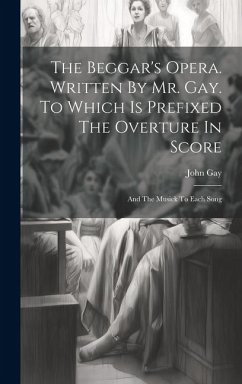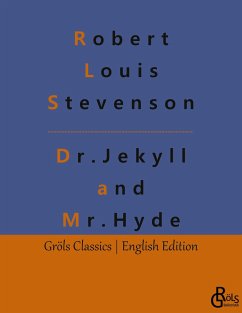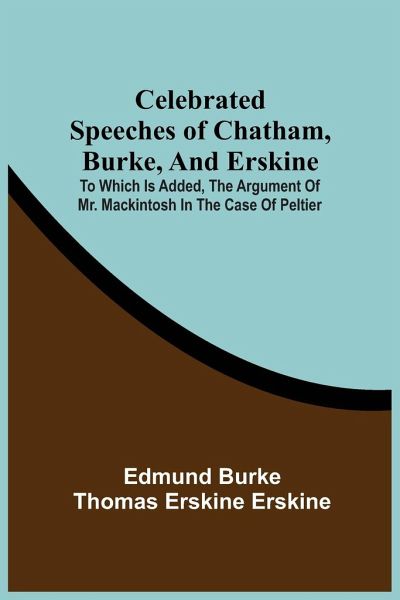
Celebrated Speeches Of Chatham, Burke, And Erskine; To Which Is Added, The Argument Of Mr. Mackintosh In The Case Of Peltier
Versandkostenfrei!
Versandfertig in 1-2 Wochen
30,99 €
inkl. MwSt.

PAYBACK Punkte
15 °P sammeln!
The book, Celebrated Speeches Of Chatham, Burke, And Erskine; To Which Is Added, The Argument Of Mr. Mackintosh In The Case Of Peltier , has been considered by academicians and scholars of great significance and value to literature. This forms a part of the knowledge base for future generations. So that the book is never forgotten we have represented this book in a print format as the same form as it was originally first published. Hence any marks or annotations seen are left intentionally to preserve its true nature.





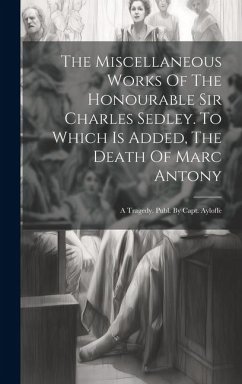
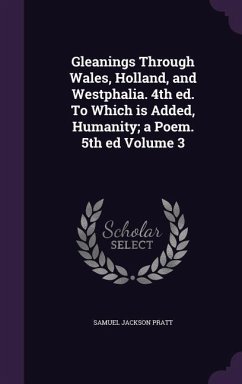

![Walks in a Forest: Or, Poems Descriptive of Scenery of a Forest [by T. Gisborne]. to Which Are Added, Some Poems Not Before Publ Cover Walks in a Forest: Or, Poems Descriptive of Scenery of a Forest [by T. Gisborne]. to Which Are Added, Some Poems Not Before Publ](https://bilder.buecher.de/produkte/69/69276/69276168n.jpg)
